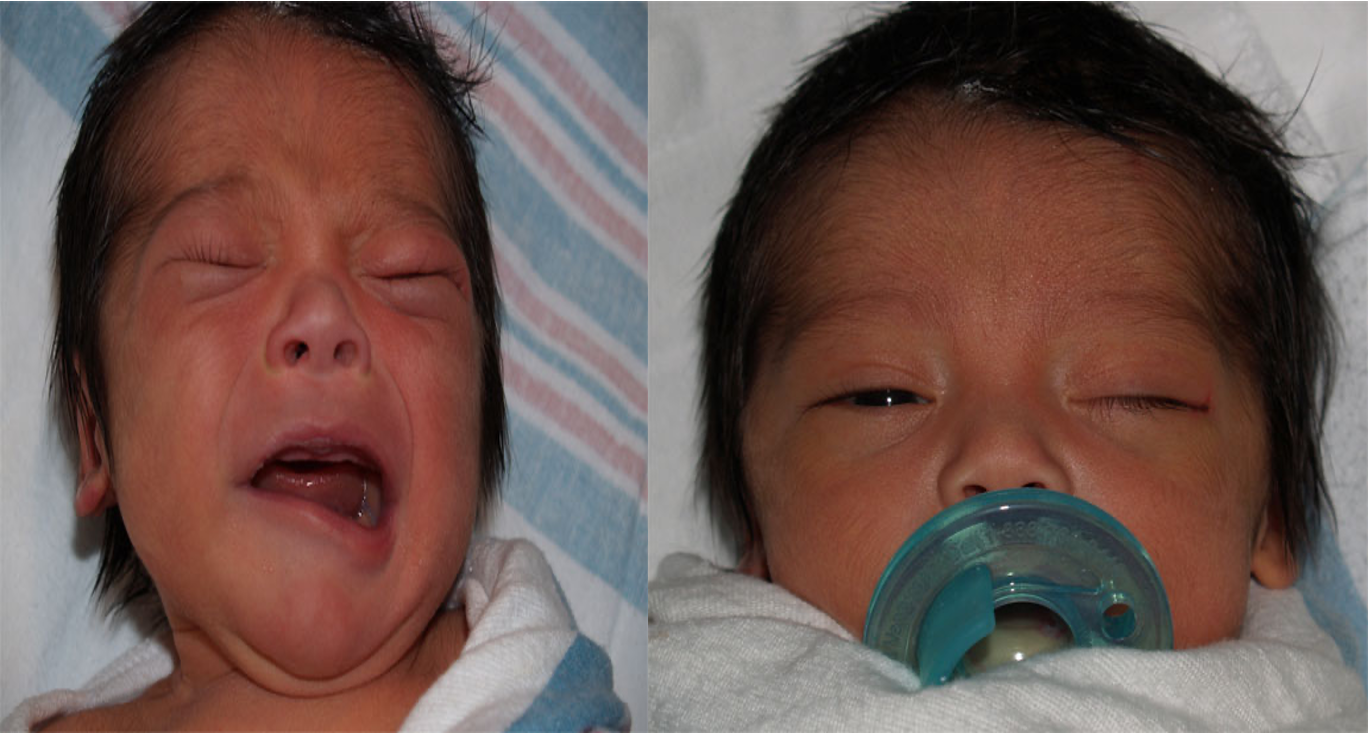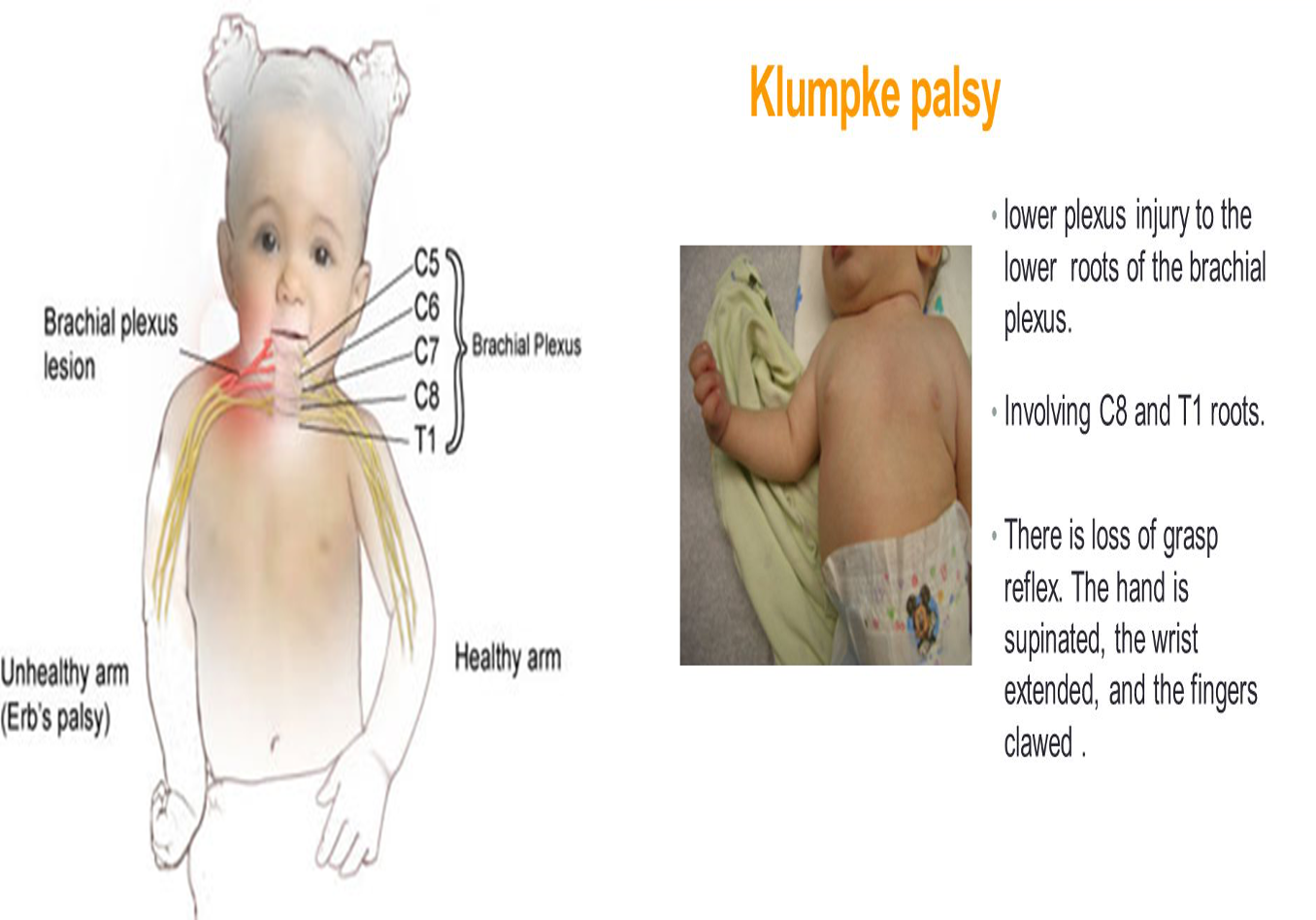Nerve Injuries
1. Phrenic Nerve Injury:
- It causes diaphragmatic paralysis with paradoxical movement.
- Clinical manifestations include respiratory distress with diminished breath sounds on the affected side.
2. Facial Nerve Injury:
- Occurs with forceps delivery or as a result of compression of the facial nerve against the mother’s ischial spine.
- It is of lower motor neuron type thus it affects the upper and lower parts of the face.
- It is usually transient, but methylcellulose drops may be needed for the eye.
 Right facial nerve injury, uncomplete closure of right eye when sleeping, frowning is affected from right side
Right facial nerve injury, uncomplete closure of right eye when sleeping, frowning is affected from right side
3. Brachial Plexus Injury:
Results from traction to the brachial plexus nerve roots. They may occur at breech deliveries or with shoulder dystocia.
| Erb’s paralysis (common) | Klumpke’s paralysis (rare) | |
|---|---|---|
| Site of injury | Upper trunk (C5,6) | Lower trunk (C8,T1) |
| Muscles affected | - Deltoid (abduction). - Biceps, supinator (supination) | Intrinsic muscles of the hand. |
| Position | Adduction, internal rotation of the arm with pronation of the forearm. (policeman’s tip) | Partial claw hand |
| Association | Phrenic nerve palsy (fibers from C5) | Horner’s syndrome (sympathetic fibers in T1) |
Prognosis:
- If paralysis is due to edema, and the nerve fibers are intact, the function will return within a few months.
- If paralysis is due to laceration, permanent damage will occur.
Treatment:
- Maintain the neutral position.
- Physiotherapy (nerve stimulation).
- Exploration and neuroplasty is not recommended except months later.
